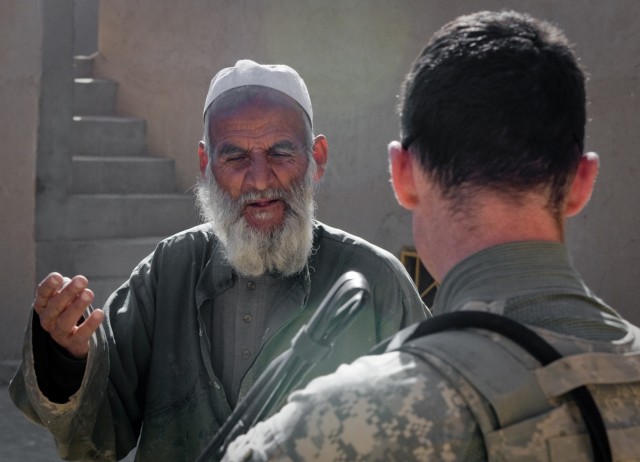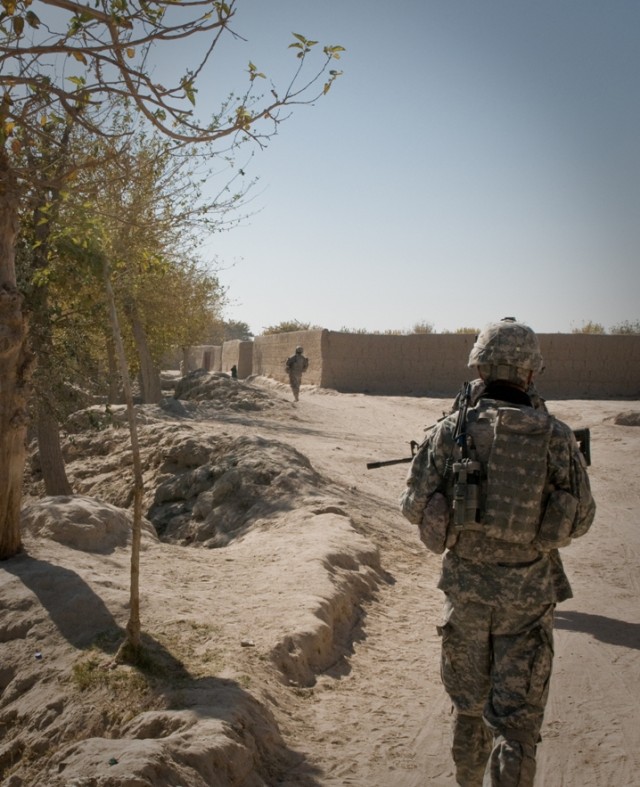COMBAT OUTPOST RATH, Afghanistan - Winning the trust and confidence of the Afghan people is considered essential to victory in Afghanistan. Gaining the faith of key local leaders is one of the best ways to do that.
Key leaders are usually the most respected people in the community, said Staff Sgt. Christopher M. Picache, squad leader with 3rd platoon, Company H (Hawk Company), 3rd Squadron, 2nd Striker Cavalry Regiment.
"We build relations with them [key leaders], so that the community feels safe with us around and doesn't view us as an occupying force," he said. "They view us more in a humanitarian way. It's the quickest way to get results."
Usually, within an Afghan community there are two leaders - a mullah and a malik. The mullah is the religious leader and the malik is the political leader. They are usually elders in the community.
Picache said a lot of times villages won't have any designated leaders and these villages are easy targets for Taliban. They don't have anyone to represent or stand up for them. The U.S. and Afghan National Army urge villages to designate leaders, he said.
One of the main ways U.S. forces help build empower leaders in Afghanistan is by facilitating town hall meetings, called shuras.
Shuras give locals an opportunity to see a strong presence of the Government of the Islamic Republic of Afghanistan and to gather and voice their concerns to leadership in order to promote change, said Picache.
"We want to see this country progress," said Cpl. Freddy H. Claros, a team leader for the company. "I like knowing that were trying to make it a little bit better. We may act all hard because we're U.S. Soldiers, but it feels good to know that all of the stuff we go through makes a difference."
Claros said that once leadership is in place, U.S. and Afghan forces can start addressing the concerns of the people. Small changes in the local Afghan community can lead to big changes for southern Afghanistan.
"They don't have jobs like we do in America," said Claros. "By protecting the people who are doing the right thing, we start driving the Taliban out."




Social Sharing